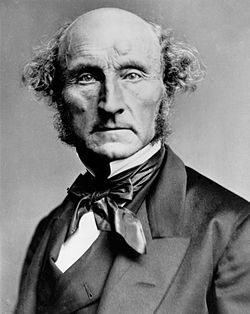J.S. Mill Quote
If all mankind minus one were of one opinion, and only one person were of the contrary opinion, mankind would be no more justified in silencing that one person than he, if he had the power, would be justified in silencing mankind. Were an opinion a personal possession of no value except to the owner, if to be obstructed in the enjoyment of it were simply a private injury, it would make some difference whether the injury was inflicted only on a few persons or on many. But the peculiar evil of silencing the expression of an opinion is that it is robbing the human race, posterity as well as the existing generation-- those who dissent from the opinion, still more than those who hold it.
If all mankind minus one were of one opinion, and only one person were of the contrary opinion, mankind would be no more justified in silencing that one person than he, if he had the power, would be justified in silencing mankind. Were an opinion a personal possession of no value except to the owner, if to be obstructed in the enjoyment of it were simply a private injury, it would make some difference whether the injury was inflicted only on a few persons or on many. But the peculiar evil of silencing the expression of an opinion is that it is robbing the human race, posterity as well as the existing generation-- those who dissent from the opinion, still more than those who hold it.
Related Quotes
About J.S. Mill
The Columbia Encyclopedia describes Mill as occasionally coming "close to socialism, a theory repugnant to his predecessors". He was a proponent of utilitarianism, an ethical theory developed by his predecessor Jeremy Bentham. He contributed to the investigation of scientific methodology, though his knowledge of the topic was based on the writings of others, notably William Whewell, John Herschel, and Auguste Comte, and research carried out for Mill by Alexander Bain. He engaged in written debate with Whewell. A member of the Liberal Party and author of the early feminist work The Subjection of Women, Mill was also the second Member of Parliament to call for women's suffrage after Henry Hunt in 1832.
